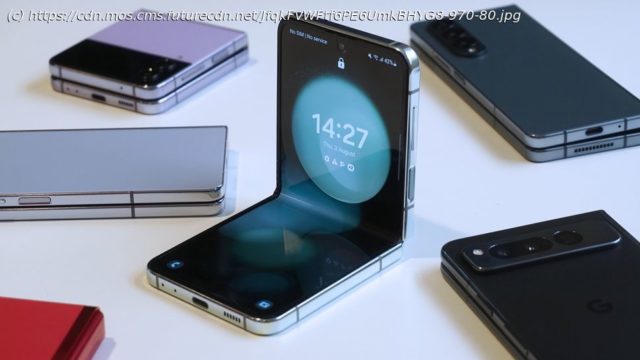Let’s unpack this
As I gear up for what should be another exciting Samsung Galaxy Unpacked, with the July 10 event set to feature new foldable phones, smart watches, and a smart ring, I’m reminded of the still harsh truth about the folding phone market: it accounts for just 1.5% of global smartphone sales.
If you consider that the global phone market is worth $509 billion, then 1.5% of that market, or $7.9 billion, is not a terrible number. But if we account for mindshare, foldables are still a blip in the public consciousness.
Market research company Trendforce has some useful numbers about what it considers the «gradual rise» of the foldable market that could reach. wait for it. 5% by 2028.
While the market for the best foldable phones is small, it’s getting crowded, with phone manufacturers acting like there’s a foldable land rush. After Samsung established the market with its Samsung Galazy Z Flip and Samsung Galazy Z Fold (which took a few iterations to become usable), competitors like Google, Huawei, Oppo, ZTE, and Honor rushed in with their own similar but often slightly thinner, prettier, or more powerful models.
To Samsung’s credit, it’s been upgrading its foldables effectively for a few years now, and is expected to break new ground in Paris with the Samsung Galaxy Z Flip 6 and Samsung Galaxy Z Fold 6.Unfolding the truth
In the global marketplace, that strategy may not matter much as competitors have chipped away at Samsung’s foldable dominance, pushing it this year to just above 50%. The other biggest foldable market player is now Huawei.
What’s interesting about the TrendForce pie chart below is not just that Samsung and Huawei essentially own the foldable market (with Motorola bringing up the rear with 6.7%), but that Huawei, a Chinese company that does not sell its devices in the US, is such a big player.
Extrapolating a little bit, this may support my theory that the foldable marketplace is not truly global, and is instead centered in China, South Korea, and maybe India.
Домой
United States
USA — software The foldable phone market is still tiny – Galaxy Unpacked is Samsung's...






